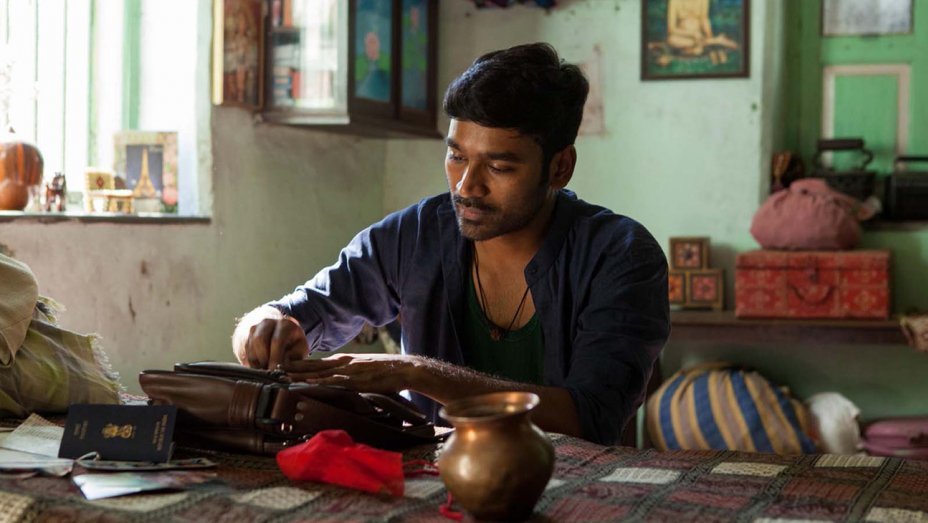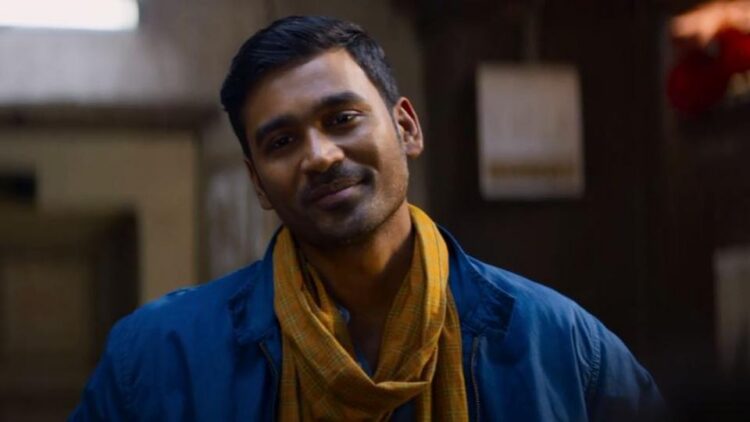The Extraordinary Journey of the Fakir thinks it’s a whimsical movie about a poor man from the slums of India trying to find his identity, place and purpose within the vastness of this world. In reality, it’s a messy and frankly simple minded motion picture that is made bearable — heck, somewhat entertaining — by its charismatic leading man who’s doing everything in his power to keep the ship afloat. The book in which it’s adapted from, ‘The Extraordinary Journey of the Fakir Who Got Trapped in an Ikea Wardrobe’ was apparently a huge hit in France and sold across 36 countries. I have not read the book, but I guess this is definitely one of those instances where fans of the novel would scoff and say, “screw the movie! The book is far better.”
The movie actually starts off in a rather entertaining fashion. We meet an inquisitive little boy named Aja, who lives in the slums of Mumbai with his single mother. Aja’s mother told him he’s a miracle baby — think Jesus or Anakin Skywalker. But Aja knows she’s bullshitting. This leads to a hilarious gag that runs for about 10 minutes, where Aja keeps pointing towards random men they bump into at the morning market or on the street and wonders if that’s his father. In school, Aja learns about the world out there and realises that he’s poor. Promising never to be poor again and dreaming of travelling the world, Aja becomes a street magician and a pickpocket, mostly conning European tourists.

When his mother passes away, Aja discovers love letters from his estranged French father. So, Aja with nothing but a plane ticket, passport and a fake 100 Euro bill journeys to Paris. I like the scene where Aja realises that he’s getting conned by a chatty French taxi driver who’s driving around in circles just to increase the rate of the fare. Instead of getting angry, he smiles to himself: “For the first time in my life, I’m seen as a rich Indian tourist.” Of course, he later proceeds to hustle the cab driver. Aja goes to Ikea and bumps into an American girl and they hit it off right away. Aja asks a girl out on a date. “Meet me at the Eifel tower, tomorrow night at 7 pm,” he says. Because he has no money, that night, he decides to sleep in one of the Ikea wardrobes.
He wakes up in a cargo truck on the way to England, with a bunch of Somalian refugees.
This is where director Ken Scott and screenwriter Luc Bossi loses control over their vehicle. The Extraordinary Journey of the Fakir suddenly becomes a film about the global refugee crisis. Aja and the Somalians led by Barkhad Abdi’s character get caught by the border police. For whatever reason, the officer breaks into song, in one of the most cringe-worthy, tonally jarring, laughably terrible sequences of the year.

And then they get transported to Spain because *nonsense*.
And then there’s something about Karma, or at least a white man with no spiritual knowledge’s presentation of the ancient Hinduism/Buddhism concept.
Later, there’s a subplot about a Spanish actress, the man she despises and the love of her life.
There’s also something on lesbianism.
The problem isn’t just that they’re random subplots. It’s that they’re unfunny, often very exposition heavy, sometimes self-serious, contains no thematic throughline nor character development. They’re just random scenes where everything is said and nothing is felt. The cities too are presented only in stereotypes without much personality. The streets of Mumbai is as colourful as a preschooler’s crayon box, Paris only has the Eifel tower and Barcelona is nothing more than its famous wishing fountain.

A cracking song titled, ‘Madaari’, composed by Amit Trivedi (Secret Superstar, Pad Man) is made dull by bland choreography — better to listen to it on Spotify than to watch it on screen. The circumstances that Aja finds himself in are extraordinary if we list it down in bullet points — getting transported in a wardrobe, escaping a hitman via hot air balloon, etc — but the journey is very, very ordinary.
But I have to say, shining bright like a diamond in a film as bland as your average garden pebble is Dhanush, who delivers a restrained and earnest performance despite English not being his first language. He’s charming and magnetic. Note the scene where he tries to deliver a message to the girl he loves over the phone through her friend. This should’ve been the type of scene where you roll your eyes back because of how cliche and unearned it is, but Dhanush’s nuanced performance makes it a heartbreaking scene of genuine emotion.

For Tamil film audiences who have seen his range of masterful work from romantic movies (Yaaradi Nee Mohini) to heavy dramas (Aadukalam, 3, Mayakkam Enna) to epic gangster thrillers (Pudhupettai, Vada Chennai) to balls to the wall action blockbusters (Maari, VIP), this is nothing new. Putting aside Rajinikanth and Kamal Hassan (cause let’s not get into that argument right now), Dhanush is easily the best actor working in Tamil cinema today. My hope is that The Extraordinary Journey of the Fakir, for all its faults, opens the door for Dhanush to play more roles outside of Indian cinema, preferably meatier characters born out of more delectable screenplays.
Follow us on Instagram, Facebook or Telegram for more updates and breaking news.








